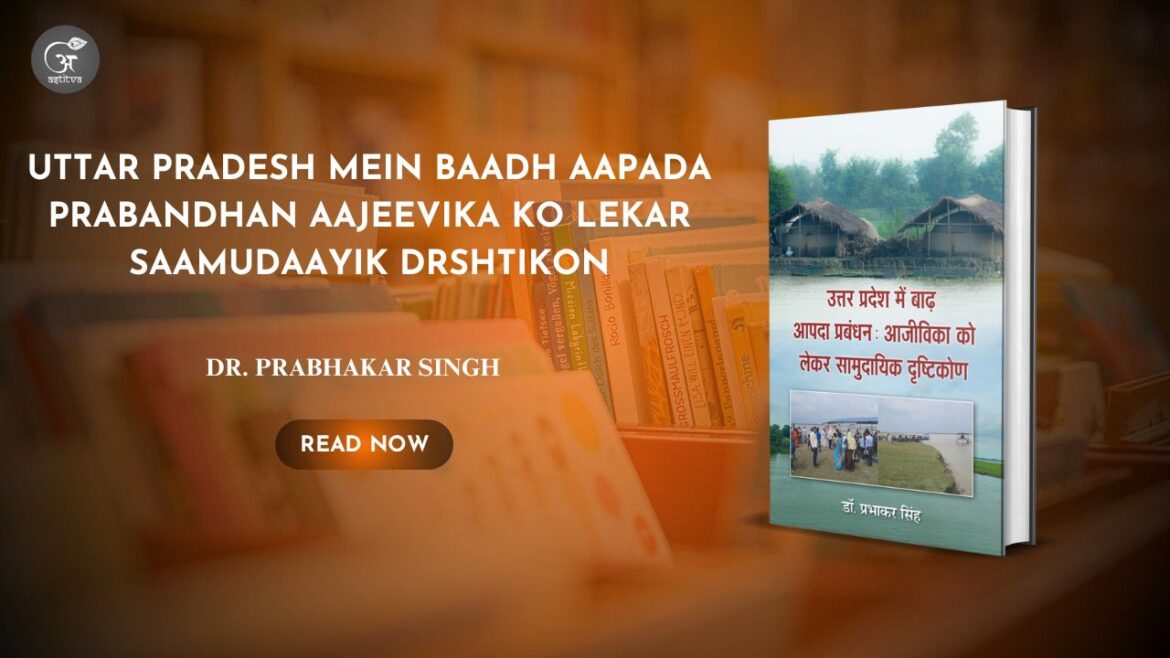The book “Uttar Pradesh mein baadh aapada prabandhan aajeevika ko lekar saamudaayik drshtikon” by Dr. Prabhakar Singh presents a compelling and in-depth analysis of the intricate relationship between natural disasters and rural livelihoods. Grounded in detailed fieldwork, this study specifically focuses on Kajipur village in Ballia district, Eastern Uttar Pradesh—a region situated in the vulnerable flood plains of the Ganga basin. Every year, the villagers in this area grapple with the devastation caused by floods, which not only disrupt the geography but trigger a chain reaction of social, economic, and institutional crises.
The book highlights the multidimensional impacts of recurring floods, extending far beyond the physical damage. It explores how agricultural practices are affected—from cultivation cycles to food production and distribution. It sheds light on how economic stability is shaken, how food security is compromised, and how social inequalities are intensified during and after such disasters. The research documents the ways in which rural communities, bound together by traditional kinship networks and self-reliance, attempt to survive and rebuild in the face of adversity.
A notable strength of the book lies in its methodical use of both qualitative and quantitative data, presenting an authentic representation of local voices, challenges, and adaptive strategies. Dr. Singh critically examines the role of governmental interventions, disaster relief mechanisms, and policy frameworks in responding to the flood situations. At the same time, he draws attention to grassroots-level efforts and the participation of local workers, laborers, and community institutions in disaster response and recovery.
This scholarly work is a significant contribution to the discourse on environmental sociology, rural development, and disaster management. By situating the lived experiences of Kajipur’s residents within larger systemic structures, the book fosters a nuanced understanding of how vulnerability and resilience operate in tandem. It challenges readers to rethink disaster management not merely as a technical or administrative issue, but as a deeply social one that intersects with livelihood, governance, and community empowerment.
Offering practical insights and policy-oriented recommendations, this book is poised to serve as a vital resource for researchers, policy makers, development practitioners, and environmental activists. It not only documents a critical regional issue but also provides a framework for inclusive and community-centric disaster management practices in rural India.
